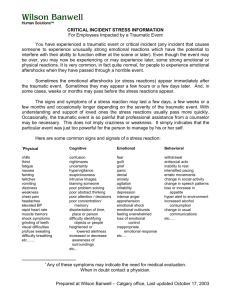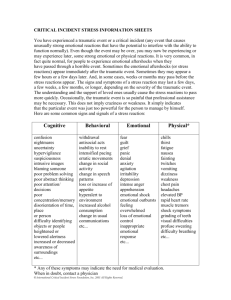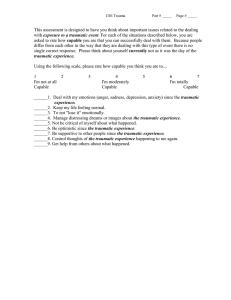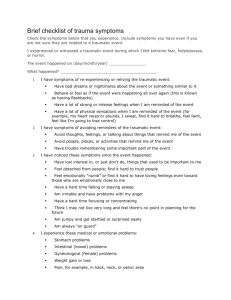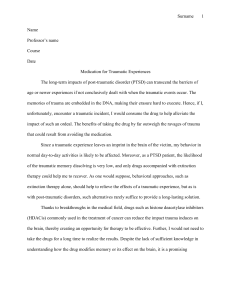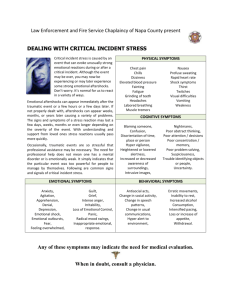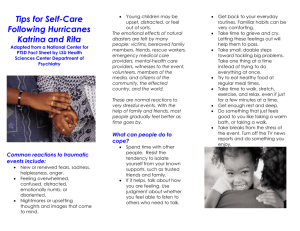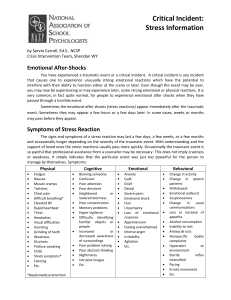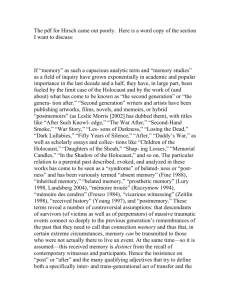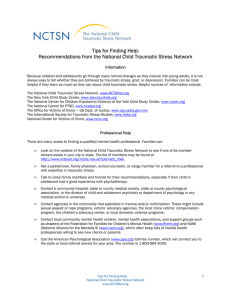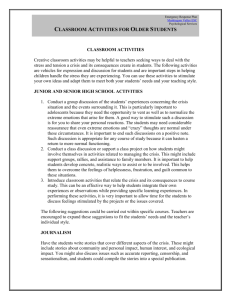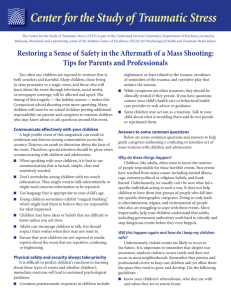After a Loss - Muskingum Valley Educational Service Center
advertisement
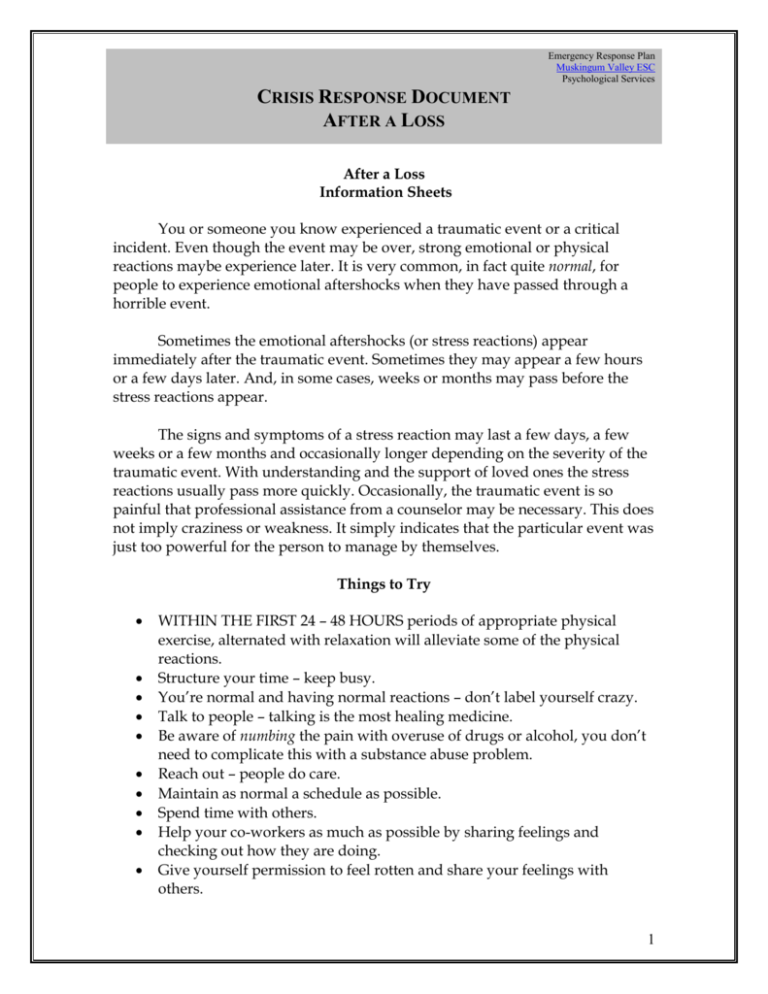
Emergency Response Plan Muskingum Valley ESC Psychological Services CRISIS RESPONSE DOCUMENT AFTER A LOSS After a Loss Information Sheets You or someone you know experienced a traumatic event or a critical incident. Even though the event may be over, strong emotional or physical reactions maybe experience later. It is very common, in fact quite normal, for people to experience emotional aftershocks when they have passed through a horrible event. Sometimes the emotional aftershocks (or stress reactions) appear immediately after the traumatic event. Sometimes they may appear a few hours or a few days later. And, in some cases, weeks or months may pass before the stress reactions appear. The signs and symptoms of a stress reaction may last a few days, a few weeks or a few months and occasionally longer depending on the severity of the traumatic event. With understanding and the support of loved ones the stress reactions usually pass more quickly. Occasionally, the traumatic event is so painful that professional assistance from a counselor may be necessary. This does not imply craziness or weakness. It simply indicates that the particular event was just too powerful for the person to manage by themselves. Things to Try WITHIN THE FIRST 24 – 48 HOURS periods of appropriate physical exercise, alternated with relaxation will alleviate some of the physical reactions. Structure your time – keep busy. You’re normal and having normal reactions – don’t label yourself crazy. Talk to people – talking is the most healing medicine. Be aware of numbing the pain with overuse of drugs or alcohol, you don’t need to complicate this with a substance abuse problem. Reach out – people do care. Maintain as normal a schedule as possible. Spend time with others. Help your co-workers as much as possible by sharing feelings and checking out how they are doing. Give yourself permission to feel rotten and share your feelings with others. 1 Emergency Response Plan Muskingum Valley ESC Psychological Services CRISIS RESPONSE DOCUMENT AFTER A LOSS Keep a journal; write your way through those sleepless hours. Do things that feel good to you. Realize those around you are under stress. Don’t make any big life changes. Do make as many daily decisions as possible which will give you a feeling of control over your life, i.e., if someone asks you what you want to eat – answer them even if you’re not sure. Get plenty of rest. Reoccurring thoughts, dreams, or flashbacks are normal – don’t try to fight them – they’ll decrease over time and become less painful. Eat well-balanced and regular meals (even if you don’t feel like it). 2
